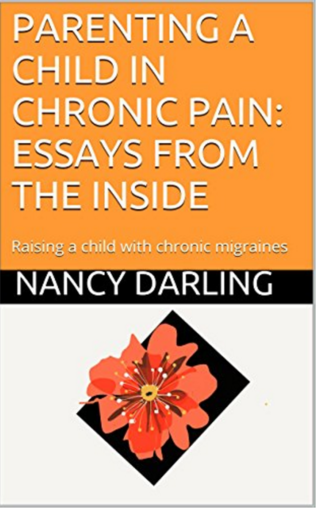Depression
What You Should Never Say to Someone Who's Suffering
Platitudes can hurt people in pain just as much as illness can.
Posted November 22, 2015
Emily McDowell has a series of empathy cards for people who have serious illnesses. One of my favorites reads:
Please let me be the first person to punch the next person who says that everything happens for a reason.
I can relate to that. My son lives in serious chronic pain from migraines and related headache disorder. He goes to school in pain. He eats in pain. He laughs and plays video games in pain. He has an amazing attitude and has gotten invaluable help and training from a clinical psychologist who specializes in working with children in pain. If you are in pain, I strongly urge you to find a good therapist who can help you to cope.

He has learned a lot from his experience. Yesterday, he told me he remains cheerful despite everything because he consciously focuses on aspects of his daily life that give him joy. That's where he keeps his self. In other words, he practices mindfulness as a conscious coping mechanism. As he heals—and I remain optimistic that he will get better—the skills he has learned will put in in good stead. If he can ever get his wheels off this sand, he will take off like a shot. This long miserable illness has helped to shape him into the amazing young man he is becoming.
But don't tell me that the constant agonizing pain he is in happened "for a reason." Or that maybe it's "for the best."
Keeping a Positive Attitude vs. Fatalism
Keeping a positive attitude and remaining optimistic is a critical part of healing for people who are chronically ill. For people in pain, in particular, depression at the limits it puts on your life is common. Depression causes pain, but pain also causes depression. The serotonin and dopamine levels and balance that contribute to one also contribute to the other. Pain can also lead to anxiety, as you constantly worry about how it will interfere with normal life functions.
Thus, maintaining a positive hopeful attitude, maintaining social relationships, and finding things that make you happy are important.
When my husband recently challenged someone who said that our son's pain happened "for a reason," she told him that he had to keep a positive attitude. But I don't think that believing his pain is part of a plan—of God, as this person believes, or of fate—is positive. It is fatalistic. It means that it has appeared for a reason and it will go away for a reason, and there is little that can be done about it.
It makes the person in pain a victim who can only suffer, like Job, who could do nothing to escape his fate.
To me, that is completely different than having a positive attitude. People with efficacy have a positive attitude. Warthogs—people who dig in and keep on pushing when the going gets tough—have a positive attitude. Similarly, people who believe that abilities are malleable and that hard work can increase intelligence work hard in the face of obstacles. They are positive and fight to hold onto their lives and keep going in spite of obstacles.
Efficacy is critically important for people to take action to maintain their health. According to Bandura's theory of social action, knowing how to do something is only one component of taking action to make your life better. You also need to believe that what you do will make a difference. Having a positive attitude enhances your belief that what you do makes a difference. Fatalism undermines it. It implies that what will be, will be, no matter what you do.
My son has a positive attitude. It helps him go to school in pain because he believes his doctors when they tell him it will help him recover. It gets him to exercise, drink lots of water, eat regularly, and stick to a very strict diet because he can see it help. He thinks his life will get better and that his actions and attitude will help him get there. That's a positive attitude.
I have seen what happens when kids lose that attitude in the sorrowful posts of mothers with kids very much like my son who are depressed and suicidal. If you've been in pain for years and you don't have hope, it must be hard to go forward.
To me, saying that illness and pain happens for a reason or for the best or that "there's a plan" takes away that efficacy. It tells me that there's a divine plan for my son to suffer. And I cannot accept that.
Related posts:
- Kids in Pain Part I: Chronic v. Acute Pain
- Kids Who Go To School In Pain
- Withdrawn Irritable Kid? Is It A Migraine?
- Getting Kids To Do Things: The Foot In The Door (how to help kids in pain get back to their lives)
- Disability? In College? Advice on Talking To Your Professors (If you are in this situation, I urge you to read the comments section as well, which has many thoughts from students.)
A collection of my posts on parenting a child with chronic pain and helping them to return to functioning: This includes all the essays below plus others on helping kids return to school, keeping kids organized, general parenting, and the frustration of dealing with people who just don't get it.





